Most Americans support Ukraine as it battles Russia’s invasion, though most don’t go so far as to back American military involvement. Russia is on the wrong side of the conflict, according to most Americans in the latest Economist/YouGov Poll: Almost none say they sympathize with Russia more than Ukraine, and most see Russia as unfriendly or an enemy while seeing Ukraine as an ally or friendly. However, the proportion of Americans who say they care about Russia and see it as a threat have fallen slightly from the previous week’s poll.
More than four in five Americans (83%) see Russia as an unfriendly country, with 59% explicitly calling it an enemy of the U.S., roughly the same as a week ago but up significantly from before the invasion.
Meanwhile, 28% call Ukraine an ally and another 49% say it is friendly.
While 75% of Americans sympathize more with Ukraine in the conflict, just 3% sympathize more with Russia — down from 6% last week.
Far fewer Americans say Russia is a democracy than say the same about Ukraine. Only 7% of Americans say that Russia is a democracy, compared to 53% who say the same about Ukraine.
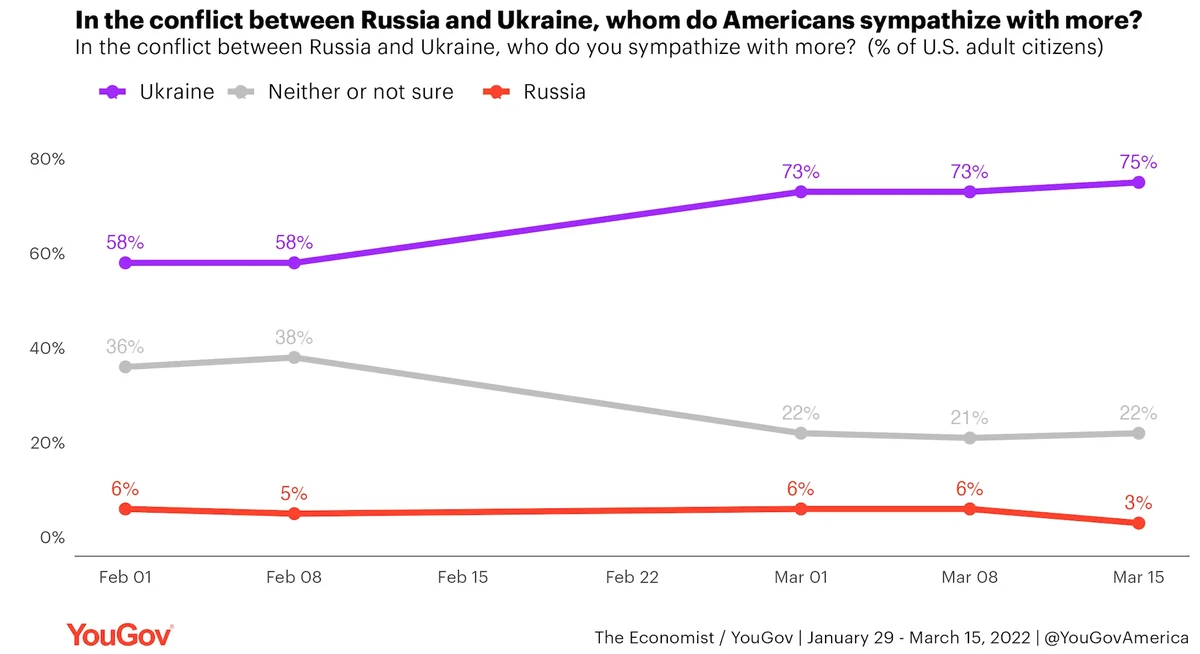
American support for accepting refugees fleeing violence in Ukraine keeps growing — up to 60% this week.
Nearly four in five Americans (79%) call Russia a threat to the U.S., including 51% of Americans who call the threat posed by Russia “immediate and serious.” That’s down from 57% a week earlier.
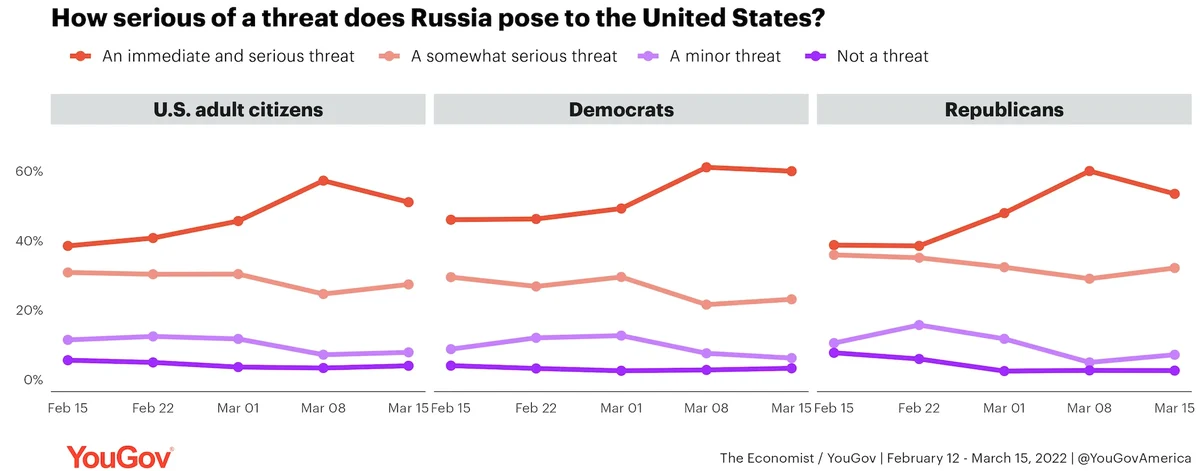
While 65% say Russian President Vladimir Putin is personally “a very serious threat” to the U.S., that’s down 3 points from 68% the previous week.
Fewer Americans say they care about what happens in Russia, or think what happens there affects the U.S., than last week. Both figures remain above pre-invasion levels.
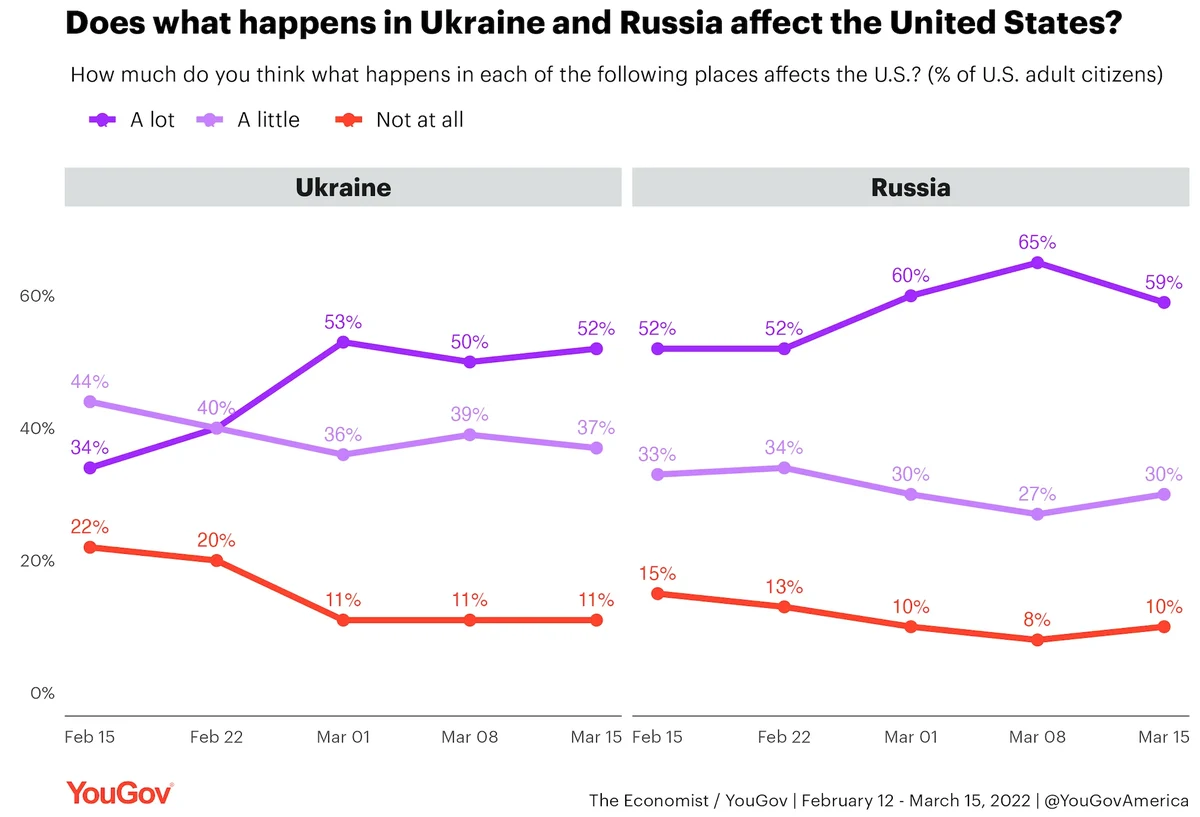
As for how Putin is waging the war, 74% of Americans believe Russia is deliberately striking civilian areas, and 73% think Putin should be charged with war crimes — up from 69% and 70%, respectively, the previous week.
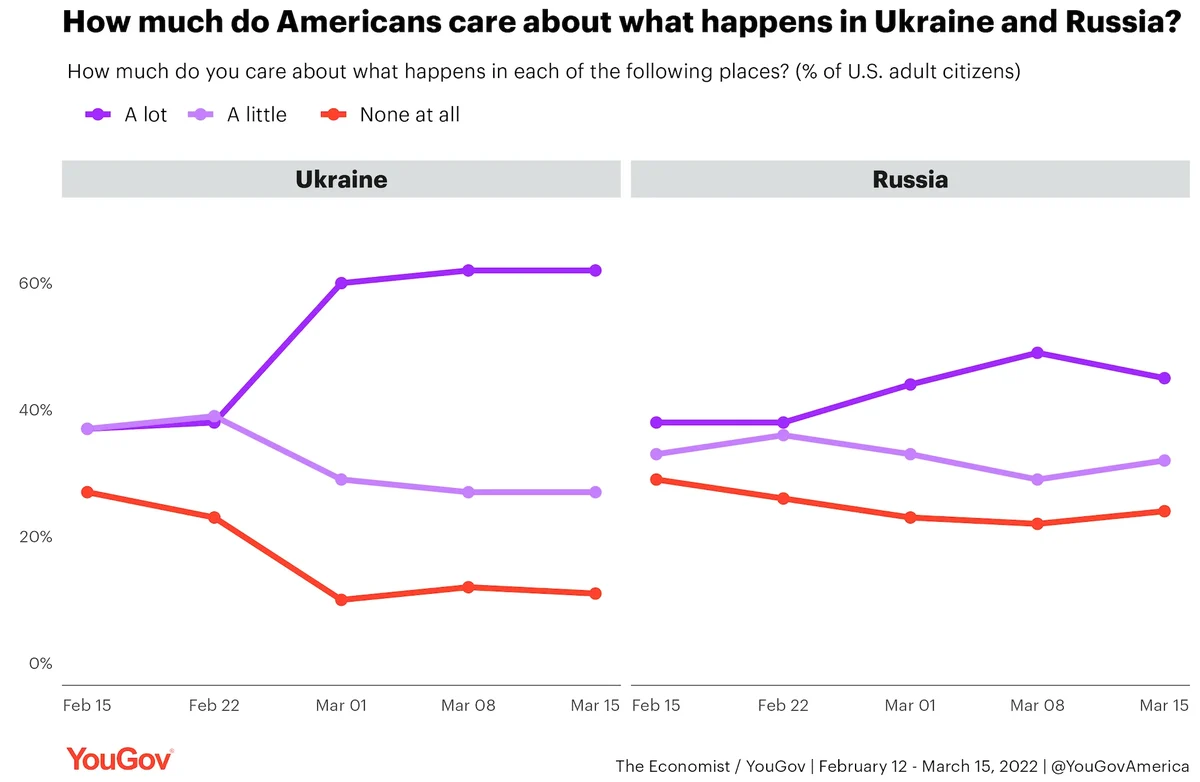
Older Americans, who may remember the days of the Cold War when schools routinely held air raid drills, are especially negative about Putin’s and Russia’s behavior in this invasion. For example, 89% of Americans 65 and older say Russia is deliberately striking civilian areas, 89% say Putin is guilty of war crimes, and 90% sympathize with Ukraine. Those respective figures for adults under 30 are 59%, 60%, and 60%.
Americans view Ukrainian President Vlodymyr Zelensky very differently than they view Putin. A growing number of Americans view Zelensky favorably. This week, the share of Americans with a favorable opinion of Zelensky is nearly five times higher than the share with an unfavorable opinion.
Putin, meanwhile, continues to be a strong leader by many Americans, though not as many who say the same about Zelensky. Both are seen as strong leaders by more Americans than is U.S. President Joe Biden. Much of that difference comes from Republicans: 73% call Putin a strong leader, and 83% say that about Zelensky, but just 6% believe the American president has strong qualities of leadership. Putin’s standing as a strong leader among Americans is slipping though, with more calling him weak each week.
But neither of the two warring leaders have convinced the U.S. public he has a clear plan for their military strategy. Just one in three Americans believe each does. Even fewer, 22%, believe Biden does.
After a slight lift in Americans opinion of Biden in the first poll taken after his State of the Union address, he has lost a few points of approval or confidence for his handling of foreign policy, of an international crisis, and of the Russia-Ukraine situation.
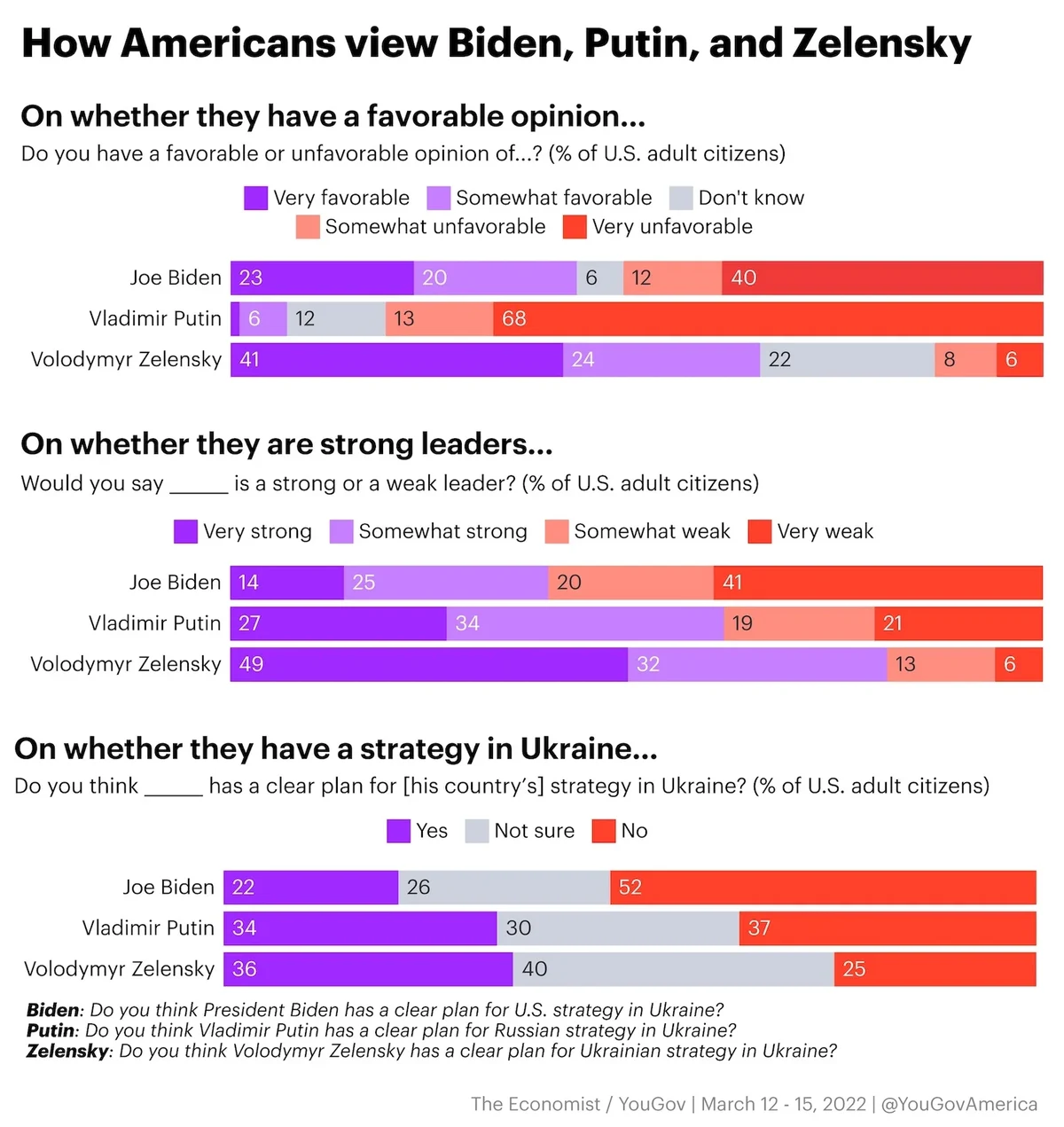
While Americans are uneasy with Biden, they generally support the specifics of the U.S. response to the invasion: economic sanctions, economic aid to Ukraine, and sending U.S. troops to NATO countries in Eastern and Central Europe. Many want even more done – with the exception of sending U.S. troops to Ukraine (just 34% call it a good idea to send troops to Ukraine to help but not to fight, and only 20% say it's a good idea to send troops to Ukraine to fight Russian soldiers).
Two-thirds of Americans approve of the economic sanctions the U.S. has put in place.
And two-thirds of Americans would support more sanctions.
About half say there should be more sanctions even if prices in the U.S go up because of them. In general, nearly half (and more than half of Republicans) want the U.S. to be tougher. U.S. sympathies are overwhelmingly with Ukraine, despite concern over how the sanctions might affect Americans and Russians.
But there is little hope for a quick outcome, or for one that will be popular in the United States (a victory by Ukraine). Even though just 13% say that more than half of the Russian people support the war — and just 20% say the same of more than half of Russian soldiers — 29% of Americans say Russia is winning the war. Fewer (17%) believe Ukraine is winning, though 31% say neither side is.
Despite broad support for Zelensky, Ukraine, and U.S. actions, there is an undercurrent of pessimism to American opinion about the war. Only 13% expect it to end within two months. Asked what they expect to be the case for Ukraine in a year, as many think it will be under Russian control as believe it will remain an independent nation.
Nearly two-thirds of Americans (64%) say it is somewhat or very likely that the Russian invasion will lead to a wider war in Europe. While the share who say the same about a war between Russia and the U.S. is just 44%, that’s more than the 32% who say it is not very likely or not at all likely.
Most Americans believe the chances of a new Cold War (64%) and a nuclear war (55%) are greater than they were five years ago. Both are down slightly from a week earlier. Americans 65 and older are especially likely to think the chance of each kind of major conflict has increased since 2017: 80% say so about a new Cold War while 63% say so about a nuclear war.
See the toplines and crosstabs from this Economist/YouGov Poll
Methodology: The Economist survey was conducted by YouGov using a nationally representative sample of 1,500 U.S. adult citizens interviewed online between March 12 - 15, 2022. This sample was weighted according to gender, age, race, and education based on the 2018 American Community Survey, conducted by the U.S. Census Bureau, as well as 2016 and 2020 Presidential votes (or non-votes). Respondents were selected from YouGov’s opt-in panel to be representative of all U.S. citizens. The margin of error is approximately 3% for the overall sample.
Image: Getty















